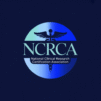A Path to Excellence in Clinical Research Staffing
NCRCA accreditation ensures your organization meets rigorous global standards for clinical trial staffing, competency verification, and regulatory compliance—with credibility that sponsors and regulators value.
1. Purpose & Scope
Our accreditation model is built to:
- Validate consistent credential compliance among all staff
- Foster transparent credential management across roles
- Ensure ethical and operational alignment with global clinical research guidelines (GCRAA-accredited)
- Facilitate auditable, sponsor-ready documentation through annual renewal and work verification
2. Accreditation Requirements
Certified NCRCA-accredited employers must demonstrate:
✅ Staff Certification Compliance
- Every research-facing employee must hold a valid NCRCA credential (e.g., NCCRPT, NCCRMA, NCCRPCT, NCCRA, etc.)
- Certification documentation must be verified within 60 days of hire and renewed annually thereafter
- Annual renewal includes documentation of 10 Continuing Education Units (CEUs) and 500 hours of research employment
✅ Data Submission & Verification
- Employers must submit an annual employee data report with renewal to ensure accurate tracking
- Records must confirm both certification expiration and CEU/hours completed
✅ Ethical & Educational Integrity
- Credential holders must complete accredited CEUs focused on ethics, Good Clinical Practice (GCP), and patient safety
- Employers must prohibit use of unaccredited or online-only training programs that do not meet NCRCA standards
✅ Employer Directory & Public Verification
- Accredited employers are listed in a public-facing registry, enabling sponsors to confirm compliance instantly
- Group certification capabilities and sponsor-accessible data tools enhance audit-readiness
3. Sponsor Assurance & Audit Preparedness
By partnering with NCRCA-accredited employers, sponsors can rely on:
- A uniform, certified workforce trained across critical roles including phlebotomy, patient care, and coordination
- Documentation of credential validity, hours worked, and CEA compliance—ready for sponsor audits or IRB reviews
- Evidence-based trust in ethical trial conduct, data integrity, and participant safety across global site operations
4. Renewal & Compliance Protocol
| Compliance Area | Requirement |
|---|---|
| Certification Status | Valid NCRCA credential for all staff |
| Continuing Education (CEU) | Annual minimum of 10 CEUs |
| Employment Verification | 500 active research hours in past 12 months |
| Training Compliance | Only NCRCA-accredited, role-specific programs |
| Annual Reporting | Employee data form and renewal application |
5. Getting Accredited (Easy, Transparent Process)
- Submit Letter of Intent
Express your interest and request the full accreditation application. - Review & Documentation
Share your credentialing policy, CEU tracking procedures, and employment verification systems. - Accreditation Decision & Registry Listing
Once approved, your organization is listed in our official Employer Accreditation Registry and sponsors can verify your compliance. - Maintain Accreditation
Submit your annual employee data file and renewal to remain in good standing and visible to industry stakeholders.
6. Why Accreditation Matters
- Instills Sponsor Trust: Verified staffing compliance and credential standards reduce sponsor risk and increase contract opportunities
- Operational Efficiency: Centralizes credential tracking and CEU validation to simplify HR workflows
- Global Standards Alignment: Supports multinational and FDA/ICH-GCP compliance expectations
- Ethical Leadership: Accreditation demonstrates a proactive commitment to patient safety and data integrity across every location
Accreditation is more than recognition—it’s accountability. By meeting NCRCA Employer Accreditation Standards, your organization becomes a visible, trusted partner for sponsors worldwide, delivering professional staffing, audit readiness, and consistent quality in every trial.
3. Ethical Standards and Patient Safety
- Accredited employers must uphold and enforce the NCRCA Code of Ethics.
- All certified staff must be trained in and operate according to Good Clinical Practice (GCP), HIPAA, and IRB-approved protocols.
- Employers must have internal processes to report, investigate, and resolve violations of ethical or regulatory standards.
4. Certification Tracking & Employer Accountability
- Employers are responsible for using the NCRCA Employer Accreditation Portal to:
- Track certification status
- Upload CEU documentation
- Receive renewal alerts and compliance notices
- Designated compliance officers or HR representatives should serve as liaisons to NCRCA.
5. Site Readiness and Regulatory Preparedness
- Accredited employers must demonstrate audit-readiness, including maintaining:
- Certification records
- CEU logs
- Policy documents affirming adherence to NCRCA requirements
- Sites must be prepared to present workforce credentialing documentation during sponsor visits, FDA audits, or regulatory inspections.
6. Organizational Culture of Compliance
- Employers are expected to foster a compliance-driven, safety-focused culture that values national standards and continual improvement.
- Leadership must champion NCRCA certification as a requirement, not a recommendation, for all staff who support or conduct clinical research.
7. Public Recognition and Transparency
- NCRCA-accredited employers are listed in the National Registry of Accredited Employers, signifying their alignment with the highest clinical research workforce standards.
- This public designation enhances the organization’s reputation among sponsors, CROs, investigators, and trial participants.
✅ Conclusion
NCRCA’s Standards of Accreditation are more than operational requirements—they represent a commitment to excellence, a safeguard for public health, and a framework for long-term credibility in clinical research. Employers who meet and maintain these standards help shape a research industry that is trusted, ethical, and globally respected.
For questions about accreditation, compliance, or implementation support, contact NCRCA
